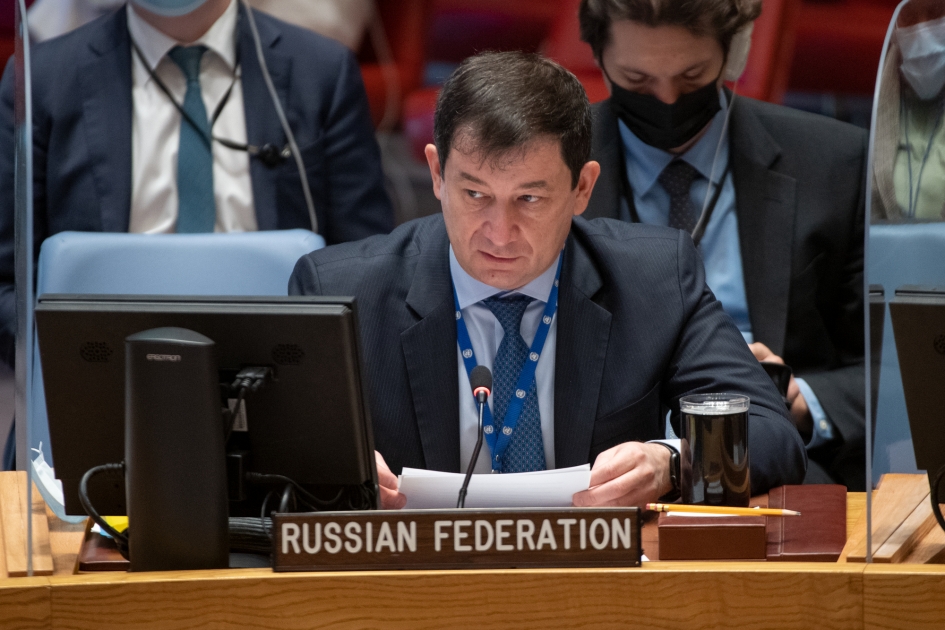Statement by First Deputy Permanent Representative Dmitry Polyanskiy at UNSC briefing on the situation in Libya
Mr.President,
We thank Mr. Ján Kubiš for briefing us on the situation in Libya, and Permanent Representative of India Ambassador Tirumurti for providing a report about the activity of the 1970 Sanctions Committee. We also closely followed the remarks by Ms.BenSaad.
Ján, in light of your recently announced intention to resign from the position of Special Envoy, we would like to thank you for your efforts aimed at ensuring stabilization in Libya and around it. You assumed this office at a time when it was critically important to keep the momentum and support Libya’s course at settlement. Many issues pertaining to the political process were solved thanks to your contribution. By all means, there are still many challenges lying ahead of us. So we emphasize that the UN continued support for Libya at this crucial pre-election stage remains pivotal.
Mr.President,
In general, we consider the situation in Libya stable. It is our understanding, that the key task at this stage of the political process is organization of presidential and parliamentary elections. The Libyan House of Representatives adopted corresponding laws, thus endorsing the required legislative basis for convening a nation-wide vote.
We note that the presidential race is characterized by active nomination making. In this regard, we commend that among those who are going to run for president's office, there are candidates representing all political forces and regions, including representatives of the former authorities. We believe such a scenario deserves our shared support and increases the chances of the pending vote being successful. We are convinced that the political process can be a success only if it is truly inclusive. Hopefully, on this basis Libyans will be able to lift the burden of contradictions and mutual recriminations, which will promote nation-wide reconciliation.
However, we still hear voices (i.a. coming from Libya itself) saying that the electoral process needs to be rescheduled. We are confident that such developments are very undesirable and might trigger grave consequences to affect Libya’s fragile peace and deepen the internal divide in this country.
We also note some progress at the military track. On 6-8 October this year, during a retreat session in Geneva, the 5+5 Joint Military Commission endorsed a plan of action for step-by-step balanced and synchronized withdrawal of all mercenaries, foreign fighters and forces from Libya. This decision is based on a holistic approach that resonates with our own position. We also consistently advocate for this scheme of evacuation of all non-Libyan armed groups and military formations. Otherwise the balance that has helped Libya maintain ceasefire for more than a year might be disrupted. We look forward to receiving the details of this finalized withdrawal mechanism.
We proceed from the assumption that the Libyan National Army (LNA) should play an important role in the process of consolidation of armed forces in Libya, because the LNA leadership has knowledge and expertise that are relevant for the re-emerging state. For our part, we encourage all Libyan forces to engage in constructive cooperation with each other.
We will continue taking an active part in international efforts aimed at promoting Libyan political settlement both through targeted engagement with the Libyan sides and through working in multilateral formats. We appreciate the efforts of our French colleagues who convened an international conference on Libya on 12 November this year. Its final document follows in the footsteps of the previous conferences to address the Libyan file. Most importantly, these decisions call to uphold the schedule of political process, including elections, that was endorsed one year ago.
Thank you.
